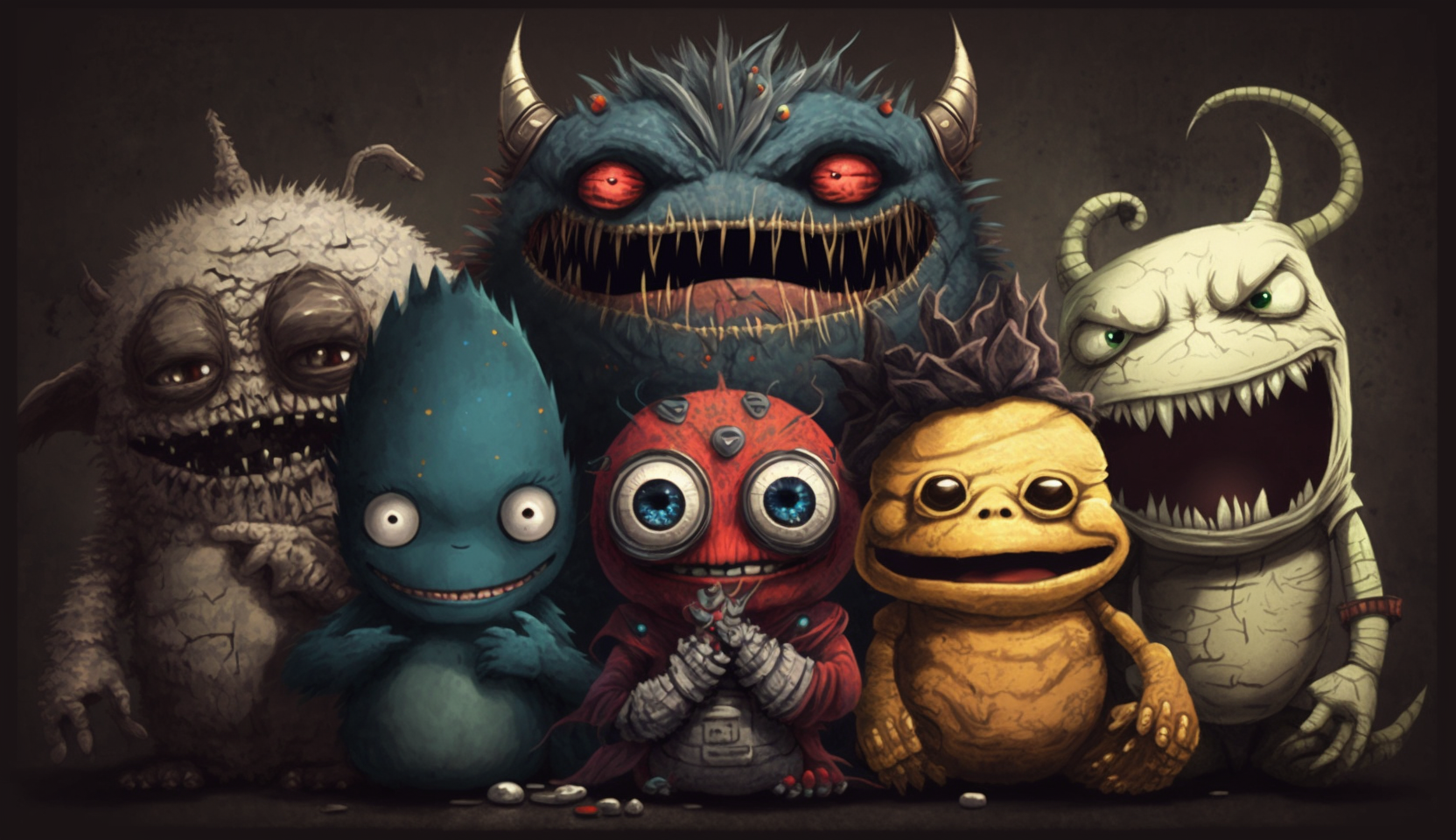regarding: https://paulkingsnorth.substack.com/p/the-universal
I enjoyed this intriguing and well-written post forwarded to me by a friend. This post has some thoughts:
By proposing (from previous posts) that each age of humanity fixates on a sovereign for their age, he sets out to uncover the someone or something that is the heir to the throne.
Spoiler Alert: its an internet connected AI.
In some ways it’s a companion piece (or err, homage) to Scott Alexander’s Moloch essay, Interesting this was recently discussed at around 42:09 by Max Tegmark who is one of the orchestrators of the GPT Pause letter.
I fear this article overly biases towards a core Christian narrative: that earth is a battleground of good vs evil. Kingsnorth borrows Steiner’s Lucifer, Christ, Ahriman* trinity before dismissing it. I guess he was “steel-manning” Steiner view in order to dismiss it but keep Christ at the middle – much the same as Buddhism’s middle way or Lao Tzu’s water method.
The Problem with Monsters 1
Unfortunately for Kingsnorth, Steiner’s model is the most theologically compelling element of the piece. He does agree “Ahriman, the spiritual personification of the age of the Machine” (updated to the etheric realm emergence of computer and AI tech).
He provides some background that tech perniciously also reprograms us. No arguments there and the AI 1.0 of social media is proof that exponential capitalism has no ethics when it comes to hacking human psychological bugs for profit. John Vervaeke would neutralize this, I can’t recall his exact example but:
- mankind invents a thing for drinking, lets call it a “cup”
- cup is made in the shape most adapted to how we would hold it
- soon when we reach for a cup, our hand forms in the shape of the cup.
- we have “adaptive fit” to the tool
Similarly Yuval Noah Harari asserted that Humans (Sapiens) were conquered by agriculture. That the humble grain dominated us, transformed us, terminated hunter-gatherer societies and gave us bad backs from bending over all the time.
So Kingsnorth is, too, invoking an old human-hacking technology: “story-time with monsters” to deliver a morality tale.
The Actual Themes
And I think that is a disservice to the actual themes:
- what does each age of humanity worship? (in the era of agriculture it was a plough and commerce, in our era Kingsnorth is proposing its internet connected AI and our infatuation with all things computer**).
- Humanity’s track record of hubris in defending (a) has an appalling batting average
- in regards to (b), the exponential technology that the internet and AI is (rightfully pointed out by Tristan Harris) is much worse than Nuclear weapons because those weapons can’t rebuild and “improve” themselves like AI can.
- that AI people are modern hipster versions Saruman’s orc workers, actively constructing the beast to dominate us. They use words like “ushering”, signalling a subservient act, pre-emptively assigning grandeur in a worshipful way to the new intelligence they have a hand in creating.
The Problem with Monsters 2
I’d agree with all this but the disservice is to use amygdala stimulating monster stories to mobilize a response. Perhaps I misquote Einstein: “No problem can be solved from the same level of consciousness that created it.”
Therein lies the questionably efficacy of Christian “battle of light-vs-evil” grand narratives in a post-post-modern world. I am under no delusion that evil doesn’t exist (we all know that as a current within ourselves) but anthropomorphising human psychopathy into entities can’t stop at 2 baddies vs 1 goodie. Why not reel in the whole goetic demon universe?
It strikes me that Tegmark and co’s letter is a more pre-frontal cortex response and therefore more constructive. The debates on that are outside the scope of this post.
Beyond those Amygdala hacking Monsters
I’d propose we drop the ancient myth method of trying to shock us into acknowledging an absence of wisdom and find a new way.
The recent movie “don’t look up”, that Max Tegmark reminds us of is a modern analogy. That our collective hypnosis and daily momentum stops us from acting to protect a better outcome.
For me the movie was a long form of Douglas Adams (in Hitchhiker’s Guide…) hilarious “SEP cloaking device”. In his book, the device is a technology that renders objects invisible by making them seem like they are somebody else’s problem.
Another known metaphor is the frog being boiled in slowly heating water.
My understanding is that from an evolutionary perspective we respond to rapid movements as threats in a linear landscape such as a jungle or savannah. The problem for us now is that changes are exponential and we don’t have evolutionary adapted equipment to see that readily. Couple that with the societal stress of mortgage slavery, capitalist, materialistic fixations and we can’t do more than glance at an “internet connected AI” and not see anything but the SEP cloak.
We need exponential thinkers like Tegmark and (at time of writing this, over) 26.6K signatures to re-program our response, not dismissively (as so many tech-bros would), not naively, not for fear of monsters but no less stridently.
The Tragedy of the Global Commons indeed. I hope Kingsnorth’s post helped people find that new way rather than just shake fists.
Sweetums
So what has this got to do with Prometheus, Icarus, Sweetums and Lucifer?
- Prometheus was a rebel for technological advancement and punished for hubris
- Icarus was test-flighting a new technological advancement and his hubris was his demise
- Lucifer (re-cast by Christians as Satan-like, but originally a bringer of Light***
- He’s just a monster. Adults fear monsters, kids have a balance of fear and “delight of fear” 🤔🤗
* Ahriman, a Zoroastrianism representing darkness and evil in material form.
** Is it our love of tech or really is that just a mirror to our love of intellect and facts. We
*** Lucifer, as the fallen angel and one of Steiner’s eternal forces on earth (not Satan) is really the main clue. Controversially, we can take the original morality tale as: “humanity’s greatest evil is to worship mind greater than anything else” – being cast out for his pride and desire for power, he and his followers “fell”, in the intellectual analogue to Adam and Eve’s “fall” desire for knowledge, power and early delights (desires).
As an antidote to us not being the smartest (information processing) beings on the planet, Tegmark proposes some other human traits (especially subjective experience) that perhaps we should celebrate and put at the center of our self-worth. It’s a great proposal and in agreement to my earlier post where I explored this. I updated accordingly.


